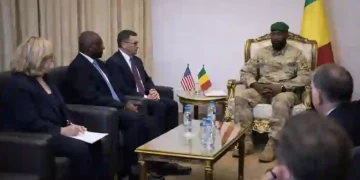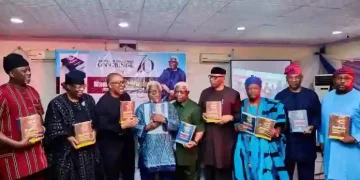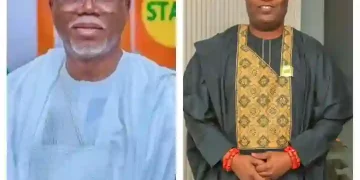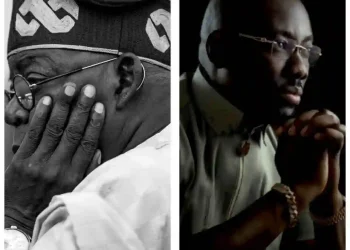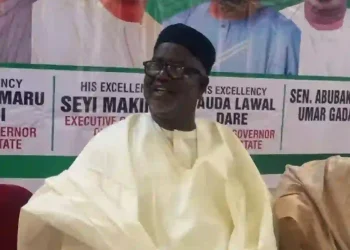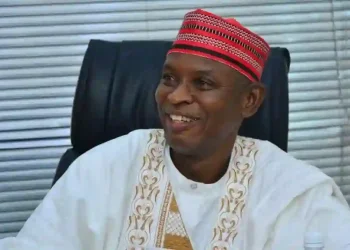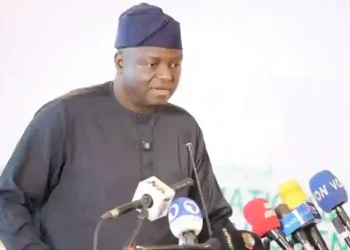Dapo Abiodun’s Educational Qualifications: The Moral Burden
A few weeks ago, on my way to Ibadan, I drove past a secondary school in Iperu where paintings of several icons dotted the fence. The objective was clear—the management wants the school children to be inspired by the many giants and men who have accomplished something in life through the education they acquired.
Some of the paintings had the picture of Mr. Dapo Abiodun (hun!!!), the Governor of Ogun State, Professor of Letters and Literature Wole Soyinka, former Governor of Ogun State Otunba (Engr.) Gbenga Daniel, FNSE, FNAEng, and deservedly, Engr. Noimot Salako-Oyedele, the Deputy Governor of Ogun State, among a host of others.
My mind raced back to my years in primary school and the song we used to sing:
“Bàtà mí á dún kó kó kà,
Bàtà mí á dún kó kó kà,
bí mbá kà’wé mi,
Bàtà mí á dún kó kó kà.”
Ours is a society that places premium on education, integrity, industry, and enterprise. Our childhood was exciting, and most of our early training was rooted in learning by rote and lessons taught through songs.
“Jẹ́ Olóòtítọ́, jẹ́ Ọmọ rere,
Jesu fẹ́ kí gbogbo wa jẹ́ ọmọ rere”
was used to teach us the values of integrity and honesty, and the expectations of society. We were taught why we should respect our mothers with:
“Ìyá ni wúrà iyebíyé,
tí a kò le f’owó rà.
Ó lóyún mí f’ósù mẹ́sàn,
ó pon mí f’ọdún mẹ́fà…”
I must confess—I had a nostalgic recall of those prime years of tranquillity, when we had less to worry about security or poverty. As far as we were concerned, our individual parents were the richest, because we were less exposed to the competitions and contests of luxuries.
The leadership of the community was determined by honesty, generosity, courage, integrity, and wisdom. They celebrated personal achievements and successes only if you could justify the source. But time has changed.
While reliving the nostalgic moments, a few days later, news of the consolidated graduation ceremony at Moshood Abiola Polytechnic, Abeokuta, went viral. I also saw Mr. Dapo Abiodun, in the hood of an academic gown, as Visitor to the Institution.
My mind became restless again, trying to deconstruct the sanctimonious symbolism of wearing a graduation gown—something with which we had been raised—and the contradictions it now presents.
We were told in those years that the wearing of these gowns is a symbol of accomplishment, having been trained in character and learning. It was usually a solemn moment for us, carrying with it a sense of spiritual or ecclesiastical piousness. Matriculation gowns are usually different from graduation gowns, which means not all those who wore the matriculation gown would go on to wear the graduation gown.
We were told (though I have never witnessed it) that a student at the point of expulsion could be made to wear the graduation gown—symbolically, a student who completed education through bad character.
The solemnity of the graduation ceremony was designed to inspire undergraduates to aspire to one day wear those gowns.
Seeing Mr. Abiodun in an academic gown, therefore, sent me back to that less-than-impressive interview he granted a Channels TV reporter a few years ago, where he claimed the discourse around his educational qualifications was a matter before the court.
This, many interpreted as a deliberate sidestep of questions about his career integrity.
I then asked myself: Can Mr. Dapo Abiodun indeed be an inspiration to any younger generation? I would have thought that the management of institutions displaying his image and showcasing him as a symbol of academic excellence would require him to first clear the air on the controversy surrounding his academic qualifications.
Dapo Abiodun can only inspire students to short-circuit knowledge and live on falsehoods. He cannot inspire the values of excellence and integrity as long as he is not forthcoming about the real schools he attended, cannot parade schoolmates, and fails to show the world his certificates.
Several official records and citations read at public events claim academic excellence in institutions of higher learning that he now appears to deny.
Should our society continue to reward and return characters with doubtful identity to leadership positions? And what manner of lessons do we expect our children to learn from his kind?
Felá Omo Ewú Kélé Maja
Ògìrìyàn tí ń sunkún àtánde gbangba
Ilé ewú l’otun, t’Akijà l’ósì

